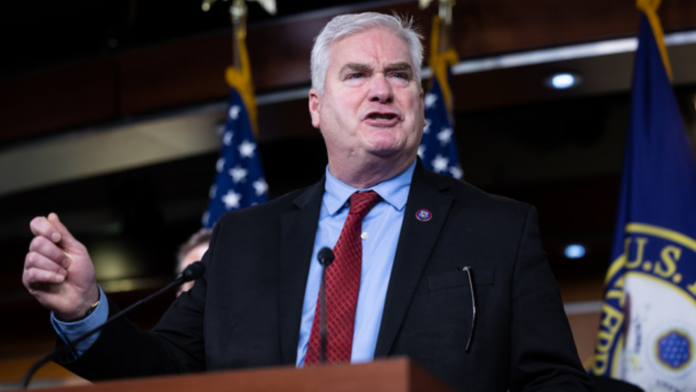In the ever-evolving landscape of cryptocurrency, the intersection of technology, policy, and public safety often sparks heated debates. A recent development that has drawn considerable attention involves U.S. Representative Tom Emmer’s vocal criticism of the Office of Management and Budget’s (OMB) approval for the Energy Information Administration (EIA) to impose a new data collection mandate on Bitcoin mining operations.
Rep. Emmer’s concerns, highlighted in a letter to the OMB dated February 22, center around the perceived overreach of authority in the quest to gather information from Bitcoin mining firms. The decision, according to Emmer, challenges the foundational freedoms that underpin the cryptocurrency sector, particularly those related to Bitcoin’s network security and operational openness.
The controversy stems from the OMB’s January 24 endorsement of the EIA’s request, marking the beginning of what some see as an intrusive survey regime. The initiative aims to comprehensively catalog the energy usage, sources, and other operational details of Bitcoin mining activities. Emmer, aligning with the broader cryptocurrency community, questions the necessity and implications of such scrutiny, especially given the lack of evident public safety threats posed by these operations.
Central to the dispute is the debate over Bitcoin mining’s energy consumption and its environmental impact. Critics, including certain factions within the Biden Administration, advocate for stringent measures, such as proposed taxes on miners’ energy use, to ensure they “pay their fair share.” This stance is challenged by supporters who see Bitcoin mining as a secure, democratized, and vital component of the digital currency ecosystem, reflective of core American values of innovation and freedom.
Rep. Emmer’s letter not only contests the EIA’s actions but also demands clarity on the emergency procedures invoked to justify this sudden data collection effort. The lawmaker’s inquiries touch on the broader implications for regulatory precedents and the safeguarding of collected data, hinting at the potential for overreach and the need for balanced, transparent governance in the digital age.
This unfolding story highlights a pivotal moment for the cryptocurrency sector, as it grapples with the challenges of regulatory compliance, environmental sustainability, and the preservation of the decentralized principles that have propelled digital currencies like Bitcoin into the global spotlight.
As we delve deeper into this issue, it becomes clear that the core debate is not just about energy consumption or public safety but about the future of innovation, regulation, and the delicate balance between oversight and freedom in the digital economy. The outcome of this dispute could set significant precedents for how cryptocurrency operations, especially those as crucial as Bitcoin mining, are viewed and managed by government entities moving forward.















